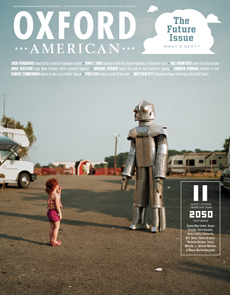She Likes Us…
Lois Tilton has some nice words to say about content provider (or what used to be called a magazine) Blackgate in her year-end evaluation of sources for SF&F short fiction:
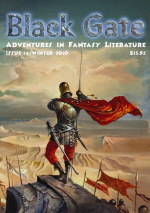
Black Gate put out only a single issue this year but made up for it in the sheer mass of sword and sorcery and other adventure fantasy. The quality was high; I’m happy to see this zine has given up its excessive attachment to endless story series. My favorite was “The Word of Azrael” by Mathew David Surridge, possibly the ultimate sendup of sword and sorcery.
She also cited Interzone as her favorite SF magazine. While I hardly begin to touch the depth of her coverage, I feel the same way. I was also interested to see her comment that,
F&SF remains one of the most diverse publications in the field, with a mix ranging from mundane science fiction to horror. It provided more stories that ended up on this list than any other publication, but I wish there hadn’t also been so many silly stories of little merit…
That’s always been my impression and I wonder if Gordon van Gelder feels compelled for some reason to publish these “silly stories” as a kind of tribute to the pulp tradition of stories that were silly even by the standards of the era. Of course, that’s part of the charm, I suppose. Sort of like the whole “Crouching with Dragons” phenomenon in which you’re making a purposefully bad movie, but doing it really well. On the other hand, seeing it one time is kind of amusing, but a regular diet makes you all the more desirous of something with higher nutrition.

 There’s an
There’s an  On the heels of
On the heels of 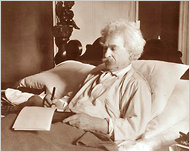 So in this Kindelized, iPadded and Nooked age of reading trivialized by celebrity tell-it-alls, self-help elevation and political numbwits (though excerpts from the book demonstrate that things were just as bad in Twain’s era as ours, except ours is perhaps a little worse thanks to the Internet and cable TV), Mark Twain’s physical opus is this season’s Christmas holiday hit, surpassing even that of Keith Richards.
So in this Kindelized, iPadded and Nooked age of reading trivialized by celebrity tell-it-alls, self-help elevation and political numbwits (though excerpts from the book demonstrate that things were just as bad in Twain’s era as ours, except ours is perhaps a little worse thanks to the Internet and cable TV), Mark Twain’s physical opus is this season’s Christmas holiday hit, surpassing even that of Keith Richards.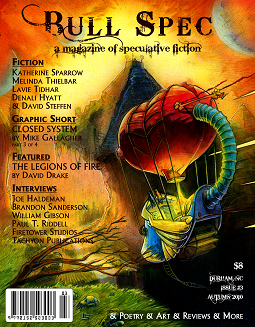 While other magazines are dying (and then, a la
While other magazines are dying (and then, a la 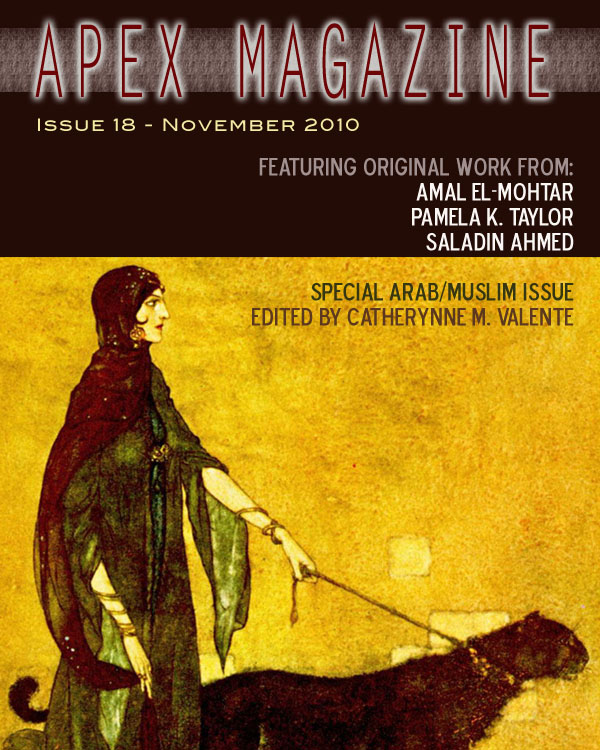 The
The  The woman held in one hand a small cigarette-package-sized radio, its antenna quivering. From this sprang tiny copper wires which ended in a dainty cone plugged into her right ear. There she was, oblivious to man and dog, listening to far winds and whispers and soap-opera cries, sleep-walking, helped up and down curbs by a husband who might just as well not have been there. This was not fiction.
The woman held in one hand a small cigarette-package-sized radio, its antenna quivering. From this sprang tiny copper wires which ended in a dainty cone plugged into her right ear. There she was, oblivious to man and dog, listening to far winds and whispers and soap-opera cries, sleep-walking, helped up and down curbs by a husband who might just as well not have been there. This was not fiction. Last week I was in Seattle and Portland, where I made pilgrimages to venues possible interest to readers here. One was Powell’s Books, which claims to be the largest independent bookstore of both used and new books in the nation. It’s an amazing place, with floors of books in a range of almost every conceivable category that would put any Barnes and Noble “superbookstore” to shame even in its heyday. Needless to say, the science fiction and fantasy aisle alone is something you could easily browse for an hour or two.
Last week I was in Seattle and Portland, where I made pilgrimages to venues possible interest to readers here. One was Powell’s Books, which claims to be the largest independent bookstore of both used and new books in the nation. It’s an amazing place, with floors of books in a range of almost every conceivable category that would put any Barnes and Noble “superbookstore” to shame even in its heyday. Needless to say, the science fiction and fantasy aisle alone is something you could easily browse for an hour or two.